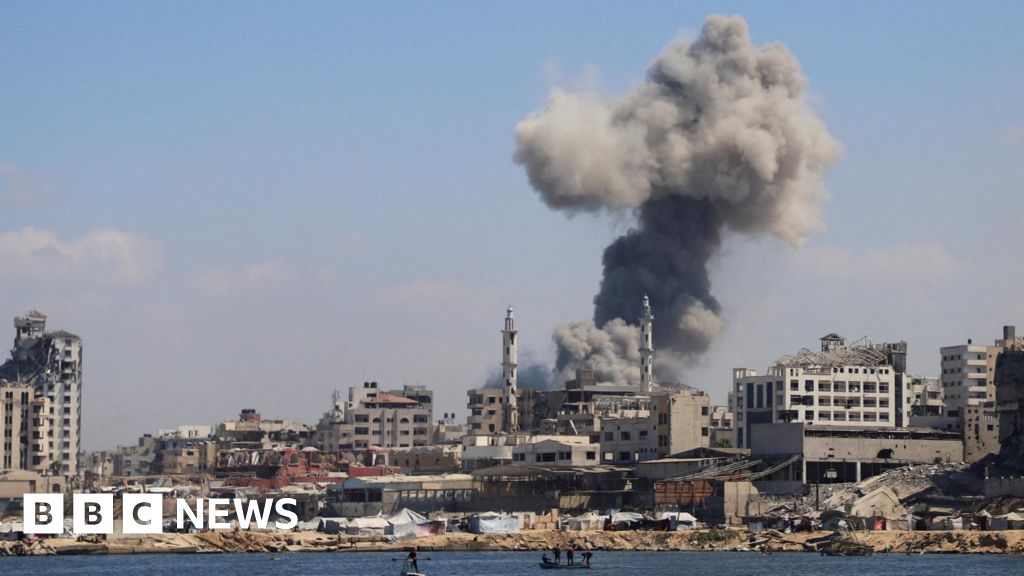UN Official Describes ‘Cataclysmic’ Gaza City as Israeli Forces Advance Amid Humanitarian Crisis
UN Official Describes ‘Cataclysmic’ Gaza City as Israeli Forces Advance Amid Humanitarian Crisis

The situation in Gaza City has been described as “nothing short of cataclysmic” by a UN official, as Israeli tanks and troops continue their advance on the third day of a ground offensive. Olga Cherevko, a spokeswoman for the UN’s humanitarian office, recounted witnessing a constant stream of Palestinians fleeing south during a recent visit, though hundreds of thousands remain trapped in the besieged city.
Concerns are mounting over the dire humanitarian situation, with the World Health Organization (WHO) warning that overwhelmed hospitals are on the brink of collapse due to blocked deliveries of lifesaving supplies. The Israeli military stated its operations are focused on “dismantling terror infrastructure and eliminating terrorists” in Gaza City, aiming to free hostages held by Hamas and defeat up to 3,000 fighters in what it calls the group’s “main stronghold.”
Despite these objectives, the offensive on Gaza’s largest urban area, home to a million people and facing confirmed famine last month, has drawn widespread international condemnation. Since mid-August, at least 200,000 people have crossed from northern to southern Gaza, with 55,000 making the journey since Sunday alone.
Cherevko, who traveled to Gaza City two days ago, described the journey and the scenes within the city as deeply harrowing, noting constant Israeli strikes “very close” to her UN convoy. Witnesses on Thursday reported Israeli tanks in the northern Sheikh Radwan and southern Tal al-Hawa neighborhoods, which have seen heavy bombardment. Local hospitals confirmed at least 14 fatalities across the Gaza Strip on Thursday, including nine in Gaza City.
The UN official highlighted the immense challenges civilians face in complying with evacuation orders, citing exorbitant costs for transport and a complete lack of guaranteed shelter or safety in designated “humanitarian areas” in the south. Many displaced families are forced to sleep on roadsides, unable to find basic accommodation.
Disclaimer: This content is aggregated from public sources online. Please verify information independently. If you believe your rights have been infringed, contact us for removal.